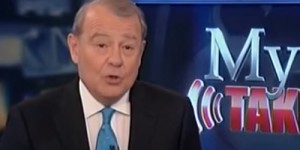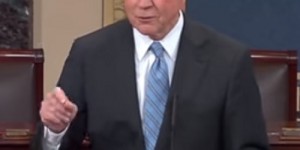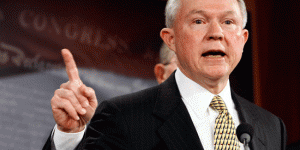Daily Caller — A new poll by Fox reveals the untapped well of political opposition to immigration amnesty to resident Barack Obama’s unilateral amnesty for million of illegals.
The poll shows that immigration is Obama’s worst-rated area, where has only 36 percent support and 60 percent opposition — 2 points more than the 58 percent who oppose Obamacare.
And the other questions in the poll show that his 36 percent support is much softer than the hard opposition from 60 percent of respondents.
For example, one question showed that huge numbers worry that his amnesty will invite more illegals.
Forty-nine percent of independents, 72 percent of Republicans and 29 percent of Democrats said it “very” likely that Obama’s “easing the immigration laws in this way will result in more people entering the United States illegally.” Only 10 percent of independents, 13 percent of Democrats and 4 percent of Republicans said they were “not at all” concerned, said the poll.
The other respondents were neutral or didn’t care much about the issue. The people with strong responses matter because they’re likely to vote on the issue, especially once Obama’s Nov. 21 amnesty sets in.
Obama’s immigration policies in 2011 and 2012 produced a wave of 130,000 Central Americans migrants in the summer of 2014. The resulting public alarm torpedoed the closed-door amnesty cooperation between Obama and GOP leaders, including House Speaker Rep. John Boehner.
But it is not clear if the GOP leadership wants to represent or to reject the many GOP and swing-voters voters who oppose more immigration.
In many polls, respondents usually grade Obama’s performance on the main issues — the economy or defense — in the same way that they grade his overall performance.
For example, in Fox’s new poll, Obama had an overall approval of 42 percent, and overall disapproval of 53 percent. His economic rating was very similar, at 43 percent approval, 55 percent disapproval, despite the high unemployment among many of his lower-income supporters. That 42 percent is his hard-core base of supporters.
But his hard-core supporters are willing to walk away from their personal and partisan loyalty to him whenever they’re asked about problematic issues that were not part of his election campaigns.
So the poll shows that Obama scores only 35 percent approval and 56 percent disapproval when respondents rated his policy towards the ISIS.
The same trend can be seen in the overall immigration issue, where he gets his worst rating, at 36 percent approval and 60 percent opposition. The number matches many other polls.
But Obama is publicly touting his Nov. 21 amnesty, so his base partisans may feel a duty to back that amnesty when they’re directly asked.
So when the poll asked respondents if they “approve or disapprove of the recent changes Barack Obama made to how the United States government will handle illegal immigrants currently living in this country,” he got higher ratings of 43 percent approval, 51 percent opposition.
When the questions move Obama out of the spotlight, or ask people to balance his actions against the other shared priorities of his supporters, the respondents express their doubts.
For example, 60 percent said they “disapprove of Obama bypassing Congress to make the changes” immigration law, while 38 percent approved.
When asked about the Obama’s impact on the constitution, 68 percent of respondents agreed that “Obama’s use of executive orders and acting without Congressional approval may be permanently altering our country’s system of checks and balances.” Only 20 percent dismissed that concern.
When asked about the threat of more migrations if the amnesty is adopted, 74 percent of respondents said that “easing the immigration laws in this way will result in more people entering the United States illegally.” Only nine percent dismissed that worry.
The intensity of his support also drops as the questions become more distant from Obama.
For example, 72 percent of Republicans said it is “very” likely that “easing the immigration laws in this way will result in more people entering the United States illegally,” while 4 percent of Republicans said they were not at all concerned.
In contrast, 29 percent of Democrats say more illegals are “very likely,” and 13 percent of Democrats said they were “not at all” concerned about more illegals.
That’s a 18:1 divide in the near-unified GOP, and a 2:1 split in a deeply divided Democratic Party.
The same lopsided intensity reappeared when respondents were asked about the impact of Obama’s policies on future presidential power. Overall, 45 percent of respondents said they were very worried, while 20 percent said they were not at all worried.
The detailed cross tabs showed that 73 percent of Republicans, 47 percent of independents and 18 percent of Democrats said they were very concerned.
Only 4 percent of Republicans, 19 percent of independents and 35 percent of Democrats said they were “not at all” concerned.
Other polls show the same intensity gap against Obama’s policies. A November 2014 YouGov poll showed that independents split on the issue with 33 percent strongly opposing to 17 percent strongly supporting.
This opposition is also concentrated in the midwestern states that the GOP’s presidential candidate needs to win back from Democrats in 2016.
The YouGov showed that 35 percent of respondents in the Midwest, but only 26 percent of respondents in western states, strongly disapprove of Obama’s amnesty.
The public’s traditional support for the ideal of immigration also shapes responses — and produces contradictory responses that sometimes hide the public’s worries. For example, the Fox poll showed that 74 percent believe Obama’s policies will spur more illegal immigration, even as 66 percent voiced approval for Obama’s policies when they were described as a reciprocal deal.
That 66 percent of respondents said they would “allow illegal immigrants to remain in the country and eventually qualify for U.S. citizenship, but only if they meet certain requirements like paying back taxes, learning English, and passing a background check.”
That result explains why Obama and his progressive and business allies are careful to describe the amnesty as a reciprocal deal. “What amnesty implies I think in the minds of the American people is that you’re getting something for nothing,” Obama told a group of supporters in Nashville, Tennessee, on Dec. 9.
“When you describe for people that, in fact, you do have to get a background check, you do have to register, you do have to pay fines, you do have to pay back-taxes, then people feel differently… that’s one reason why, by the way, that I’ve said to immigrant rights groups, you have to describe the responsibility side of this and not just the rights side of this,” he said.
In past practice, few of those requirements were enforced. Also, few are required under Obama’s amnesty.
Once the debate is framed around jobs and wages for Americans, the polls showed greater opposition to immigration.
For example, the poll asked “do you approve or disapprove of the recent changes Barack Obama made to how the United States government will handle illegal immigrants currently living in this country, including allowing more than four million illegal immigrants to remain temporarily in the United States to work?”
That description was endorsed by 54 percent — or 12-points down from the reciprocal-themed question, likely in part because it included the phrases “to work” and “four million.”
A growing number of rank-and-file GOP legislators — but still not the GOP leadership — frame the immigration debate around the impact on Americans’ wages and jobs.
“More than 200,000 Tennesseans remain out of work, but rather than prioritize their plight, the President is putting the interests of those who have broken our laws ahead of them,” said Tennessee Republican Rep. Diane Black, in a statement prior to Obama’s Tuesday visit to Nashville.
“Why should unemployed Tennesseans have to compete with illegal immigrants for jobs? And why should those who break our laws to come here be rewarded while so many wait to come here legally?” she asked. “This is wrong.”
Several other polls that ask respondents about work and immigration show far lower support for Obama’s policies, and show near-universal support for rules requiring companies to hire Americans before adding more immigrants.
Those work-and-immigration polls evoke very strong reactions from voters — and may have enough clout to allow the GOP to win swing-voters and Democrats.
For example, a September poll by Paragon Insights for the National Republican Senatorial Committee showed that large slices of the Democratic coalition would be “much more likely” to vote for a GOP candidate who says that “the first goal of immigration policy needs to be getting unemployed Americans back to work — not importing more low-wage workers to replace them.”
Thirty-eight percent of African-Americans, 39 percent of Democratic women, 36 percent of Latinos, 58 percent of retirees and roughly 47 precent of midwesterners said they would be “much more likely” to support a GOP candidate to favor the employment of Americans, accordingto the poll.
Despite these poll numbers, GOP leaders are reluctant to put themselves at the head of the voters’ parade. Instead, they’re zig-zagging between the GOP base, the demands of business donors, and their personal support for cheap-labor policies.
That maneuvering is risky, if only because it makes it harder for GOP candidates to win support from swing-voters during presidential years.
At worst, the GOP leadership could zig-zag into the same disaster as the United Kingdom’s Conservative Party, which has lost a large slice of its base to a new low-immigration party, the UK Independence Party.
Numerous polls suggest the British Conservative Party will lose power, and be deeply damaged, in expected May 2015 election because of its immigration policies.
That process worked much faster in California, which was once dominated by Republicans and elected Ronald Reagan as governor. These days, immigrants have been recruited by the progressive political machine, and they outvote the GOP voters so much that there are no GOP leaders in state-wide positions.
The result is that “California has become increasingly feudal,” says author and professor Joel Kotkin. “By some estimates, the state’s level of [economic] inequality compares with that of such global models as the Dominican Republic, Gambia, and the Republic of the Congo… Like medieval serfs, increasing numbers of Californians are downwardly mobile, and doing worse than their parents.”




























